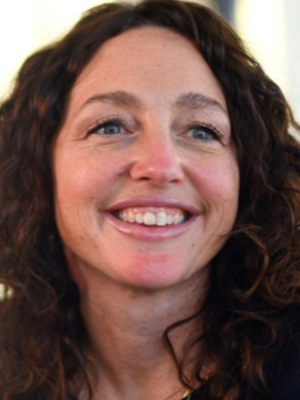Get to Know Your ACP Physician Peer Coaches

Bisi Alli, DO, MS, DipABLM, FACP, FAMWA
WellNEST Medicine LLC
Phoenix, AZ
All settings
Early-Mid-Career
Bisi Alli writes:
Dr. Bisi Alli is a Dual Board-Certified Physician in Internal Medicine & Lifestyle Medicine and Principal of WellNEST Medicine LLC. With over 10 years of experience in patient care, quality improvement (QI), and system transformation, she leverages her expertise as a LEAN Six Sigma Black Belt to enhance patient outcomes and streamline healthcare processes. Dr. Alli serves as an Associate Clinical Professor at Creighton University and an Assistant Professor at the University of Arizona College of Medicine—Phoenix. She also contributes to the Board of Directors of the American Medical Women’s Association (AMWA), is a faculty member for the Women’s Wellness through Equity & Leadership Program, and holds leadership roles on the American College of Physicians (ACP) Arizona Governor's Advisory Council and as Chair of the Task Force on Obesity Education.
Coaching Philosophy & Style
Dr. Alli’s coaching is a partnership designed to empower physicians to enhance their leadership, refine clinical processes, and integrate well-being strategies into their careers. She focuses on practical, data-driven approaches that foster sustainable growth and improve both professional fulfillment and patient care. Dr. Alli believes that true healthcare transformation begins with empowering healthcare providers to lead with purpose and simplicity, while prioritizing their own well-being.
Coaching Focus Areas
Dr. Alli specializes in quality improvement (QI), career transitions, and well-being techniques. She helps healthcare professionals implement process improvements, leverage data to drive change, and navigate career transitions while fostering personal well-being and sustaining professional fulfillment.
Impact & Recognition
Dr. Alli has coached numerous healthcare professionals, driving meaningful improvements in team collaboration, patient outcomes, and work-life integration. Her contributions to healthcare have been recognized through several awards, including the AMWA Inspire Award (2024) and the Early Career Physician of the Year (2017) from the American College of Physicians. Dr. Alli is honored to be a recipient of the ACP Advancing Equitable Obesity Care through Regional Action Grant, which supports her efforts to create health interventions that are accessible and impactful across communities.
Personal Interests
In addition to her clinical and leadership roles, Dr. Alli is deeply committed to promoting health education for all ages. This passion led her to write Tayo and the Super Produce Pals at the Grocery Store!, a children's book that makes healthy eating fun and approachable for families. Through her work and creative endeavors, Dr. Alli strives to empower communities to prioritize health and well-being, with a special focus on lifestyle medicine and food as medicine to drive long-term positive change.
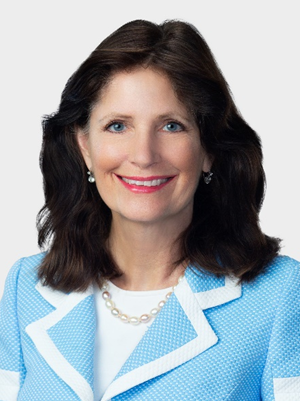
Julia Andrieni, MD, MACP
Houston Methodist Health System
Houston, TX
Inpatient, Outpatient
Late-Career
Julia Andrieni writes:
What does coaching mean to you? Coaching involves bringing out the best in others to achieve their goals by exploring possibilities and creating a strategic timeline with them.
How would you define your coaching style? My coaching style is collaborative, holistic, and focused on defining goals with an action plan.
Favorite coaching focus area? Favorite areas are Career Transitions, Career Development, and Quality Improvement at the Individual, Practice, and System levels.
What do you like to do outside of work? I love to travel, go to museums, attend music events, and dance.
Dr. Julia Andrieni, Senior Vice President of Population Health and Primary Care at Houston Methodist is a physician executive leader with a proven track record of transforming patient care resulting in improved quality and cost savings at a health system level. Her team at Houston Methodist is responsible for over 100,000 Medicare lives. Dr. Andrieni is the founder and current President and CEO of the Houston Methodist Coordinated Care (HMCC) ACO, with over 300 Primary Care physicians (employed and independent) and serves as the Chair of the HMCC ACO Board. CMS has recognized HMCC ACO for ranking #3 ACO Quality Performance and #10 Savings Per Patient from 453 Medicare ACOs nationally. She also serves as President and CEO of the Houston Methodist Physician’s Alliance for Quality, a network of over 500 private specialty physicians aligned with Houston Methodist. She is a board-certified internist and a Associate Clinical Professor of Medicine at Weill Cornell Medicine. She is the Vice Chair of Mentoring, Development, and Inclusion in the Department of Medicine at Houston Methodist. She has authored multiple publications on value-based care. Prior to her appointment at Houston Methodist, at the University of Massachusetts Medical School, Dr. Andrieni was Associate Professor of Medicine, Vice-Chair of Medicine, and Chief of General Internal Medicine. She is a past-president of the Texas Chapter of the American College of Physicians (ACP) and serves as an ACP-appointed Quality Improvement and Career mentor for physicians in healthcare systems. Dr. Andrieni was recognized by Modern Healthcare as one of the top 10 Women in Healthcare to watch. She is a graduate of the Executive Leadership in Academic Medicine (ELAM) fellowship at Drexel University. She is a Master in the American College of Physicians and member of Alpha Omega Alpha Medicine Honor Society.
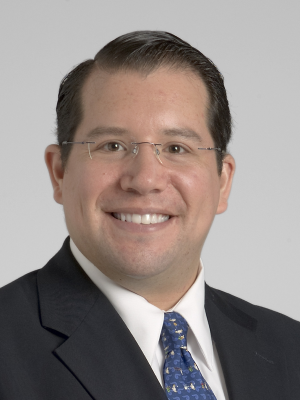
Moises Auron, MD, FAAP, FACP, SFHM, FRCP (Lon), FRCPCH
Cleveland Clinic Department of Hospital Medicine
Cleveland, OH
Inpatient
Mid-Career
Moises Auron writes:
What does coaching mean to you? Coaching is a tremendous tool that serves to help other colleagues achieve the maximum yield from their own strengths and values. It helps others to discover potential and opportunities that have lain deep within themselves, but that weren't identified or tapped into. It is a great resource that can allow an organization to thrive by enhancing engagement, motivation, and the development of its members.
How would you define your coaching style? I like transformational coaching. I don't want people to remain in the status quo. Burnout is prevalent in Medicine, and people often fail to realize that time flies by and does not return, so any opportunity to develop themselves further becomes a potent tool for personal and professional growth.
Favorite coaching focus area? I enjoy supporting people in identifying an area where they can succeed in medicine - mostly professional development and career transitions.
What do you like to do outside of work? I love being with my family, attending sports events where my children participate, eating ethnic food, traveling, listening to music, taking my children to the movie theater, and exercising (I love Orange Theory and Taekwondo).
Moises Auron, MD, FAAP, FACP, SFHM, FRCP(Lon), FRCPCH, is an academic Med-Peds Staff Physician at the Department of Hospital Medicine and the Department of Pediatric Hospital Medicine at the Cleveland Clinic main campus.
He is a Professor of Medicine and Pediatrics at the Cleveland Clinic Lerner College of Medicine of Case Western Reserve University (CWRU) and is a Master Teacher of the CWRU School of Medicine Academy of Scholar Educators; he is also a Senator at the CWRU Faculty Senate.
Dr. Auron was the Quality Improvement and Patient Safety Officer of the Department of Hospital Medicine, Cleveland Clinic Main campus, from 2015 until 2024. He has been the Medical Director of Blood Management at the Cleveland Clinic since 2018, which also covers intraoperative cell saver utilization.
Dr. Auron is also an Advanced Peer Coach and Mentor at the Cleveland Clinic Center for Executive Coaching and Mentoring..
Nationally, he serves at the American College of Physicians as the Governor for the ACP Ohio Chapter and on the Education Committee. He was elected to the Society of Hospital Medicine Pediatric Hospitalists Advisory Council. He is a member of the American Board of Pediatrics Subboard of Pediatric Hospital Medicine.
Dr. Auron has a special interest in hospital and perioperative medicine, quality, and patient safety with emphasis on blood management and publicly reported healthcare measures. He is also passionate about coaching and mentoring. In Pediatrics, his area of interest includes hospital and perioperative medicine as well as pediatric obesity, eating disorders, and transition to adulthood of patients with complex chronic diseases of childhood. He is the senior editor/author of the book Pediatric Hospital Medicine: A High-Value Approach, published by Wolters Kluwer in 2024.
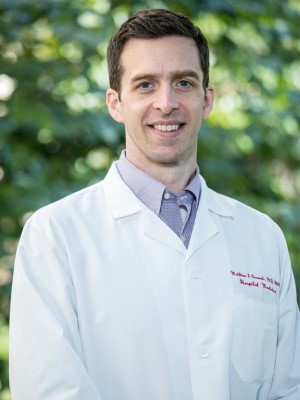
Matthew Cerasale, MD, MPH, SFHM
Univeristy of Chicago
Chicago, IL
Inpatient Hospitalist
Early-Mid-Career
Matthew Cerasale writes:
What does coaching mean to you? Coaching is often an overlooked opportunity for physicians to continue to refine and improve their practice in any domain. Professional athletes and Olympians have multiple coaches to help improve, so physicians can have coaches in multiple areas as well to help them reach their fullest potential.
How would you define your coaching style? As a coach, I focus my time on understanding the perspective of the coachee and help them to refine and navigate to their goals, using their own, well-developed, skillsets.
Favorite coaching focus area? Quality improvement is my favorite area for coaching.
What do you like to do outside of work? I enjoy fishing, running, and spending time with my two sons.
Dr. Matthew Cerasale, MD, MPH, SFHM is an Associate Professor of Medicine at the University of Chicago in the Section of Hospital Medicine. He serves as the Outcome Quality Director for UChicago Medicine, Director of Quality Improvement for Hospital Medicine, Senior Medical Director Inpatient Operations for UChicago Medicine Hyde Park, and is a core faculty member for the internal medicine residency. His quality improvement/research interests include medical informatics, clinical documentation improvement, venous thromboembolism prophylaxis, and provider evaluation.
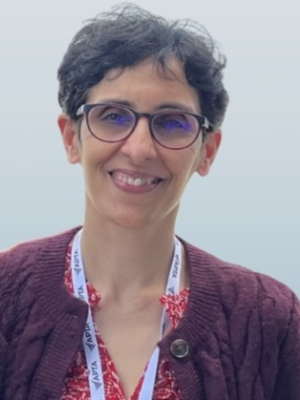
Anita Chopra, MBBS, FACP
University of Washington School of Medicine
Seattle, WA
Outpatient
Mid-Career
Anita Chopra writes:
What does coaching mean to you? Coaching is a dynamic, collaborative process rooted in deep listening, reflection, and purposeful exploration. To me, coaching means creating a safe, nonjudgmental space where individuals can clarify their vision, align their values with their professional journey, and uncover the internal and external resources needed to achieve and sustain meaningful change. It is centered around empowerment.
How would you define your coaching style? My coaching style is grounded in empathy, curiosity, and intentional guidance. I lead with open-ended inquiry and reflective listening, helping learners identify their core values, clarify their goals, and build a pathway forward. Drawing on my background in medical education, leadership, and interdisciplinary care, I integrate structure with flexibility—adapting to each person’s unique context while fostering growth that is sustainable, purpose-driven, and equity-centered.
What is your favorite coaching focus area? I’m especially passionate about supporting individuals through career transitions, helping physicians navigate key decision points, whether it’s selecting a specialty, pursuing leadership roles, or redefining their professional path. I also enjoy coaching on leadership building and well-being techniques, particularly for those seeking to build sustainable careers grounded in purpose and balance. Across all these areas, my focus is on helping learners achieve their potential, align their goals with their values and sustain meaningful change over time
What do you enjoy doing outside of work? Outside of work, I find joy in writing, spending time near the mountains, and creating community-based projects that blend health, education, and storytelling. I also enjoy quiet moments with my family, reading nonfiction, and exploring wellness practices that integrate mind and body.
Dr. Anita Chopra is a Clinical Associate Professor in the Department of Medicine and an Adjunct Clinical Associate Professor in the Department of Rehabilitation Medicine at the University of Washington. She serves as a lead physician and researcher in the UW Long COVID clinic. Her interdisciplinary expertise—spanning internal medicine, chronic disease management, rehabilitation, and public health—guides her commitment to diagnostic excellence, health equity, and clinician empowerment.
Dr. Chopra co-leads provider and community engagement efforts that strengthen diagnostic pathways for infection-associated chronic conditions such as Long COVID. She is the Chair of the American College of Physicians (ACP) Long COVID Interest Group, where she develops national educational programming on diagnostic reasoning, clinical decision-making, and complex chronic care. As co-host of the Long COVID Clinical Podcast, she provides peer-led education to clinicians in over 20 countries, with a focus on interdisciplinary care models and practical strategies for navigating diagnostic uncertainty.
She also directs Northwest Health and Wellness, a nonprofit initiative that organizes free health fairs to deliver preventive and primary care services to underserved communities, while promoting diagnostic safety and culturally responsive communication. She is leading national efforts to improve diagnostic accessibility and excellence through education, implementation science, and community-driven innovation.
A dedicated educator and mentor, Dr. Chopra, brings a coaching approach grounded in clarity, purpose, and growth. She works with medical students (MS1–MS4), internal medicine residents, and early-career physicians to help them define their vision, set specific and actionable goals, and create a plan for meaningful and sustainable change. Drawing on her interdisciplinary background in internal medicine, rehabilitation, public health, and community engagement, Dr. Chopra provides a supportive space for reflection, exploration, and decision-making.
Her coaching philosophy centers on listening deeply, asking purposeful questions, and empowering each learner to move from where they are to where they want to be—while aligning their values with their professional path and helping them sustain meaningful, long-term growth.

Angelique Collamer, MD, FACP, FACR
Uniformed Services University
Fort Worth, Texas
Outpatient
Mid-Career
Angelique Collamer writes:
What does coaching mean to you? Coaching is a transformational process that helps a person move from one phase, time or position in life to the next. To me, coaching helps a person self-reflect and define not only what they want and need, but also an optimal path for goal achievement including personal development, health and wellbeing.
How would you define your coaching style? My coaching style is one of openness, honesty and respect for whatever phase of life you are currently experiencing. I love helping people focus on what is important to them, what they want their life to be about and how to get there. We will find creative and effective solutions!
Favorite coaching focus area? (ex. Career transitions, quality improvement, well-being techniques, etc.) I'm happy to help with any challenge! I especially enjoy coaching physicians in the areas of career transitions for professional growth and well-being techniques including addressing the physical and emotional impacts of stressful careers and personal lives.
What do you like to do outside of work? I love spending time with my husband and twin adolescent children! We enjoy outdoor activities including hiking and biking and spending our vacations with family in Vermont. I am a treadmill runner, explorer of NY Times cooking recipes, and a devotee of the Duolingo language app.
Dr. Angelique Collamer completed medical school at the Uniformed Services University in Bethesda, MD; Internal Medicine Residency at Wright Patterson Air Force Base in Dayton, Ohio; and a Rheumatology Fellowship at Brooke Army Medical Center in San Antonio, Texas. Dr. Collamer next served in a variety of roles including primary care internal medicine physician, rheumatologist, medical director for internal medicine and medical subspecialty clinics including 8 clinical areas and a 110 member staff. She subsequently was selected as the Air Force Commander at the Uniformed Services University where she led 850 medical students and was an attending rheumatologist at Walter Reed National Military Medical Center. In 2017, Angie was selected as the Rheumatology Clinic Service/Division Chief at Walter Reed and spent the following five years busy in patient care, clinical research, and the teaching and mentoring of medical students, residents and fellows. In 2022, she was chosen as Chief Medical Officer of the U.S. Hospital at Royal Air Force Base Lakenheath in England. Under her leadership, the RAF Lakenheath was named the 2023 U.S. Air Force Hospital of the Year. Dr. Collamer returned to the US as a clinical rheumatologist in summer 2025. She is a Clinical Professor of Medicine at the Uniformed Services University and continues to participate in medical student, resident and fellow education.
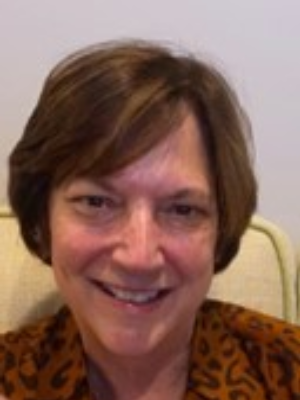
Anne G. Cook, MD, FACP
AnMed Family Medicine Residency
Anderson, SC
Inpatient & Outpatient
Mid-Career
Anne G. Cook writes:
What does coaching mean to you? It is an opportunity to help someone achieve optimal living.
How would you define your coaching style? Empathetic and relational.
Favorite coaching focus area? Well-being and identifying achievable goals to help optimize thriving in life.
What do you like to do outside of work? Lots of things but time with grandchildren tops the list. Enjoy exercise, hiking, golf, anything outside, and anything that involves getting to know interesting people.
My journey in medicine has been quite interesting and long having graduated from med school in 1983! As a mother of three (one born in med school, one in residency, and one in practice) married to a general surgeon, there has been a lot of navigation of life and practice! I have also served in local hospital leadership and previously served for ten years on our state board of medical examiners. My career in internal medicine has been primarily focused on teaching internal medicine in a community-based family medicine residency and served as an associate program director for ten years. Working with training physicians, dealing with problems with physicians in practice, and working through my personal life inspired me to pursue coaching. I first certified in health coaching through training with the University of Arizona’s Integrative Medicine Health Coaching program. When the ACP developed its program for physician coaching, I was eager to pursue further training. I have used skills learned in the ACP program to help with resident wellness and I am also currently serving as the wellness champion for our local health system. At this point in my career my passion is to help other physicians thrive. I firmly believe that coaching is an amazingly powerful tool to help individuals achieve personal growth and find their best way forward. It would be my honor to be a part of that process!
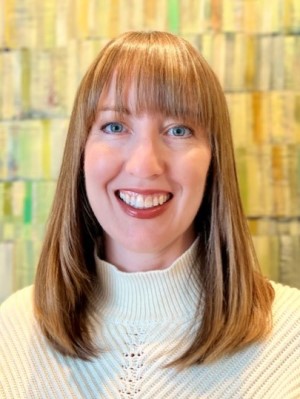
Stephanie Hartman, MD, FACP
University of Nebraska Medical Center
Omaha, NE
Outpatient
Early-Mid-Career
Stephanie Hartman writes:
What does coaching mean to you? I personally continue to work with a coach to show up the best I can for myself and the people around me I care about. This is what I hope to extend to those working with me as the coach.
How would you define your coaching style? Collaborative. This is my clinical practice style as well. I enjoy exploring with someone what they value, barriers to staying within that value set and how to set goals and boundaries to keep them on track.
Favorite coaching focus area? I don’t see any areas as off limits because so often any conflict someone is coming to coaching with really centers around a misalignment that potentially requires deploying into areas of well-being, quality improvement or a career transition. My area of focus centers around curiosity on how to move someone closer to less conflict and more wholeness.
What do you like to do outside of work? I enjoy several creative endeavors outside of work. I paint, mostly with acrylics and have more recently started to write poetry and small essays as a way of processing my experiences in life. I also love being in nature, am an avid gardener and am working on restoring an acreage in Nebraska to tall grass prairie with my husband.
Dr. Hartman is a native of Missouri and obtained undergraduate degrees in Food Science and Human Nutrition and Biochemistry as well as a Master of Science in Human Nutrition at the University of Missouri, in Columbia, Missouri. She completed her medical education at the University of Nebraska Medical Center and her residency and chief residency in Internal Medicine at Creighton University Medical Center. Before joining UNMC in 2016, she was the Medical Director for Women’s Health of the Nebraska-Western Iowa Veterans Administration.
In clinical practice, she aspires to prevent and reverse diet-related chronic disease with an emphasis on improving food and nutrition for her patients. Her interests in nutrition and preventative health have led her to being involved as a member of the Nutrition Curriculum committee for the College of Medicine and the Community Health Improvement Plan (Nutrition, Physical Activity and Weight) Committee for Nebraska Medicine. She is also a co-preceptor for the Medical Humanities and Arts Enhanced Medical Education Track and personally enjoys engaging in various creative and environmental endeavors, including painting, gardening, and ecological conservation through native prairie restoration.
Dr. Hartman is passionate about health advocacy and is the current Chair of the Health and Human Policy Committee of the Nebraska Chapter of the American College of Physicians. She was awarded the Nebraska Chapter of the American College of Physicians Advocacy Award in 2023 and the Nebraska Medical Association Advocate of the year in 2024. She is the President of the Metro Omaha Medical Society Foundation Board and is a founding Board Member of the nonprofit Nebraska Alliance for Physician Advocacy. She is especially proud of the collaborative effort with her fellow NAPA board members to produce the “Advocacy is Medicine” podcast beginning in 2023.

Varun Jain, MD, FACP
St. Francis Hospital and Medical Center
Hartford, CT
Inpatient Hospitalist
Mid-Career
Varun Jain writes:
What does coaching mean to you? Coaching is about helping others uncover their potential and move forward with clarity. It’s been transformative for me, and I’m passionate about offering that same possibility to others.
How would you define your coaching style? Supportive, open, and non-judgmental. I create space for people to rediscover their own strength and direction—especially when they feel stuck.
Favorite coaching focus area? I enjoy all aspects of coaching, with a special interest in well-being and career transitions—areas where clarity can spark real change.
What do you like to do outside of work? Reading, hiking, and spending quality time with my family keep me grounded and inspired.
I'm a board-certified internal medicine physician and hospitalist, currently serving as Assistant Professor at UConn and the Frank H. Netter School of Medicine. My work spans academic and community hospital settings, where I stay deeply engaged in the day-to-day practice of clinical medicine. My passions lie in coaching, mentoring, and helping clinicians and trainees navigate their professional journeys. I’m actively involved with the American College of Physicians and Society of Hospital Medicine, where I contribute to quality improvement, physician education, and well-being initiatives.
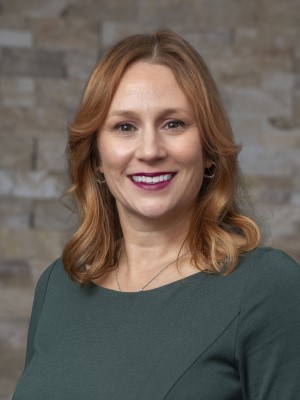
Kathryn Jobbins, DO, MS, FACP
UMass Chan Medical School-Baystate
Springfield, MA
Inpatient & Outpatient
Mid-Career
Kathryn Jobbins writes:
What does coaching mean to you? Coaching is a collaborative and empowering process that helps individuals gain clarity, build confidence, and take actionable steps toward their goals. Coaching to me is about guiding others to uncover their strengths, challenge limiting beliefs, and develop strategies for personal and professional growth.
How would you define your coaching style? My coaching style is supportive, strengths-based, and results-oriented. I focus on creating a safe, non-judgmental space where clients can openly explore their thoughts and feelings while using a structured approach to help them set clear goals, identify barriers, and develop actionable plans.
Favorite coaching focus area? My favorite coaching focus area is professional development, particularly for individuals in academic medicine. I enjoy helping clients navigate career transitions, develop leadership skills, and enhance their sense of self-efficacy, all while maintaining their well-being.
What do you like to do outside of work? Outside of work, I love reading and enjoy exploring creative writing. I am a lover of the outdoors and travelling. But mostly, I love spending time with my family and friends. Connection brings me joy!!
Katie Jobbins, DO, MS, FACP is an Associate Program Director in the Internal Medicine Department and Associate Professor of Medicine at UMass Chan Medical School-Baystate in Springfield, MA. She practices Internal Medicine as a clinician educator at High Street Health Center Adult and is an academic Hospitalist at Baystate Medical Center. Dr. Jobbins received her undergraduate degree in Nutrition Science from Syracuse University and her Masters in Science from Case Western Reserve University in Nutrition and Metabolism. She attended Ohio University Heritage College of Osteopathic Medicine where she graduated in 2010. Initially, Dr. Jobbins started her training in general surgery residency at the Cleveland Clinic--South Pointe but after 2 years found her true passion was in Internal Medicine. She then completed 3 years of Internal Medicine at Baystate Medical Center and stayed on to be Chief Resident in 2015-2016.
In her current role as Associate Program Director in Department of Internal Medicine, Dr. Jobbins serves as the director of the resident self-reflection and wellness curriculums, co-director of the humanities track, and the director of the Chief Resident leadership curriculum for the health system. She also leads the “Be the Change Social Justice” working group focusing on health inequities in patient care and in medical education. Dr. Jobbins is the co-director of the professional development program, Mentors Matter, which focuses on the importance of mentorship and coaching in the field of medicine. Since 2023, she has served as the co-chair of wellness for Baystate Medical Practices. She is an active member both nationally and locally in SGIM, AMA, AMWA, and the ACP. She most recently served as the 2024 President for the New England Regional SGIM chapter and previously served as the Meeting Chair and Secretary/Treasurer for the region. In the Massachusetts ACP Chapter, she is the immediate past co-chair of the Early Career Physician Council (CECP), was an active member of the Governor’s council, and she served as a member of the on American College of Physicians National Council of Early Career Physicians. She has won one of the 2020 AMA Inspiration Awards for her work in medical education and was AMWA’s 2021 recipient of the Exceptional Mentor Award. Dr. Jobbins is a certified Life Coach in the Mind Firm Method through the Coach Firm and through ACP Coach Training program. Her coaching expertise includes professional development, academic career development, mentorship of women in medicine, fitness motivation and healthy habits, imposter syndrome and navigating disappointment/difficult conversations in medical education.
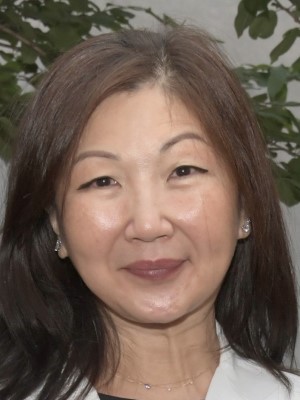
Jennifer "Ara" Lee writes:
What does coaching mean to you? Coaching is a wonderful and rewarding opportunity to work 1-on-1 with people to guide them through navigating issues that are personally and/or professionally challenging to them. Watching them unravel what was seemingly a complex situation and accompanying them on that thought journey by providing helpful prompts that nudge them to explore deeper into the issues at hand are exciting and fulfilling to me as a coach.
How would you define your coaching style? Listening, affirming, nudging and maybe even challenging the coachee to think outside the box and consider options that may have previously been daunting or unthinkable.
Favorite coaching focus area? (ex. Career transitions, quality improvement, well-being techniques, etc.) I love them all.
What do you like to do outside of work? I travel as much as possible, enjoy exploring new restaurants both at home and abroad, and spending time with people who inspire me.
Jennifer I. Lee, MD is Assistant Dean for Program Development and Operations and Associate Professor of Clinical Medicine in the Weill Department of Medicine at New York Presbyterian/Weill Cornell Medicine. She earned her M.D. degree from the Jacobs School of Medicine and Biomedical Sciences and completed her combined Internal Medicine and Pediatrics Residency at Mount Sinai Medical Center in New York City. After dual board certification, Dr. Lee maintains her board certification in internal medicine and is an academic hospitalist in the Division of General Internal Medicine where she serves as Associate Chief for Continuous Quality Improvement.
Dr. Lee’s passion is working with students, trainees and faculty in systems improvement, building a pathway for promotion through academic quality improvement (QI) initiatives and research. Over the past 15 years at Weill Cornell Medicine, she has developed numerous programs and several departmental committees across the College to build and cultivate a proactive culture of safety. In 2016, she spearheaded the development of the Weill Cornell Medicine QI Academy (QIA-WCM) for faculty to achieve academic scholarship through the design and implementation of high impact, sustainable projects aimed at improving clinical care. She has served as the department’s inaugural vice chair of quality and patient safety from 2016 – 2025.
Nationally, she was a recipient of the American Association of Medical College’s Learning Health Systems Research award in recognition of the interdivisional and interdisciplinary programs she created for the Weill Department of Medicine and has served on the Hospital Quality and Patient Safety committee for the Society of Hospital Medicine. Dr. Lee is core faculty and coach in the American College of Physician’s Center for Quality. She is also on the AMA’s Specialty and Service Society Rules committee and a member of the National Committee for Quality Assurance’s Measurement Advisory Panel. Dr. Lee is Past President of the Korean American Medical Association and serves on their Board of Directors since 2021. Internationally, she is adjunct professor at Yonsei University Hospital and has held QI workshops for trainees and faculty in Korea, Australia and New Zealand.
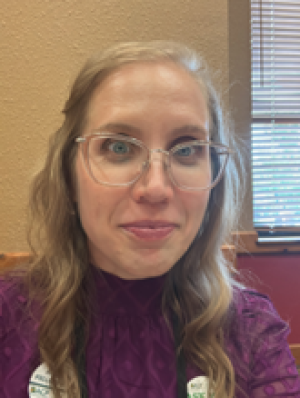
Amalia Lyons, MD, FACP
Medical College of Wisconsin
Milwaukee, WI
Outpatient Primary Care
Mid-Career
Amalia Lyons writes:
What does coaching mean to you? It is rewarding to see an individual progress toward their goal (s) and develop the skills and knowledge inherent to them.
How would you define your coaching style? Open, approachable, reflective. The focus of the interaction is the coachee.
Favorite coaching focus area? (ex. Career transitions, quality improvement, well-being techniques, etc.) well being, transitions, early career, residents
What do you like to do outside of work? Being an outdoor enthusiastic in WI, I love all the seasons and spend summers riding bike and kayaking and winters snowshoeing.
Dr. Amalia Lyons is a Primary Care Physician at Medical College of Wisconsin, Milwaukee WI. Rising through the ranks as medical student, resident, chief resident and now Associate Professor at MCW, Dr. Lyons has been Associate Program Director for Internal Medicine Program since 2015 and Program Director for the Primary Care/Ambulatory Care Track since 2016-2023. Within the WI ACP Chapter, Dr. Lyons expands her love for resident education regionally as a faculty liaison for the WI State ACP Resident and Fellow Council, expanding the Council’s activities and presence within the Chapter and collaborating with other Councils in the Chapter and more recently as part of WI State Education Council Member. Wellness and coaching have been focuses during Dr. Lyons’s career, who has completed the ACP Wellness Champion Training and ACP Advance Coach Training. She is currently the WI Chapter Wellness Committee Chair and has developed various initiatives within the WI Chapter around wellbeing and coaching including annual group coaching events at the annual chapter meeting, diversifying wellbeing opportunities at the annual chapter meeting, and quarterly virtual wellbeing sessions.
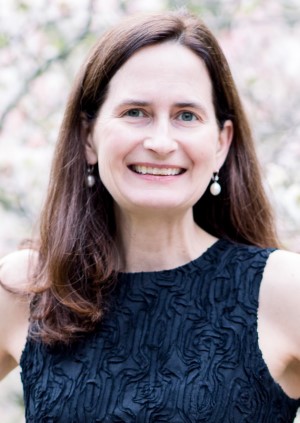
Marion McCrary, MD, FACP, FAMWA, NBC-HWC
Duke Signature Care
Chapel Hill, NC
Outpatient
Mid-late career
Marion McCrary writes:
What does coaching mean to you? I became a coach to help individuals develop awareness and make changes to optimize well-being and fulfillment in all aspects of their lives. As a coach, instead of telling people what I think they should do, I guide them to find the answers they need through a structured process. I wish I had been aware of this earlier in my career and my mission is to assist my colleagues in medicine.
How would you define your coaching style? As a National Board-Certified Health and Wellness Coach, I believe the coachee is an expert in themselves and the coaches are experts in the process. This is a collaborative relationship. I use validated strategies and the skills of listening, reflecting, and asking powerful questions to help the coachee build confidence in themselves, explore options, and create goals and action plans to meet those goals.
Favorite coaching focus area? Career Development and Transitions, Work-Life Integration, Communication, Time Management and Efficiency
What do you like to do outside of work? I find engagement, meaning, and community in professional society leadership roles outside of my full-time clinical work. I love spending time with my husband and four-legged fur baby. I enjoy visiting the coastal area of North Carolina where I do lots of beach walks, boating, and kayaking. Reading, writing, and life-long learning excite my brain.
Marion McCrary MD FACP FAMWA is an assistant professor and a primary care internal medicine physician at Duke University School of Medicine and serves as the Associate Director of the Duke Graduate Medical Education Professional Development Coaching program where she develops curriculum, educates, and coaches residents and fellows in a 1:1 and group settings. She is a national board-certified health and wellness coach.
She is passionate about encouraging physician well-being and leadership development.
She is the Governor for the NC chapter of the American College of Physicians (ACP), Co-Director for the American Medical Women’s Association’s (AMWA) EVOLVE Certificate in Leadership program for female residents and fellows, Lead Faculty for AMWA ELEVATE Certificate in Leadership program for female physicians, and a member of the AMWA Board of Directors.
She serves as an ACP Peer Coach, an ACP Well-being champion, and is President-elect of the North Carolina Clinician and Physician Retention and Well-being Consortium Board of Directors. She also co-founded the Live Your Best Life professional development curriculum and the ResetMD Podcast.
Dr. McCrary received her undergraduate and medical degrees at UNC-Chapel Hill, where she also completed her residency and served as chief resident.

Naseema Merchant, MD, FCCP, FACP, FHM
Yale School of Medicine
New Haven, CT
Inpatient & Outpatient
Mid-Career
Naseema Merchant writes:
What does coaching mean to you? Coaching to me is allowing my mentees to dream big and help them explore a pathway forward to make them come true. I want my mentees to feel confident in their abilities to pursue their goals, anticipate challenges, encourage flexibility and be ready to pivot when the situation calls for it.
How would you define your coaching style? I believe in the power of listening, reflecting and framing questions to allow mentees to have a clearer vision of their goals and plan. I explore opportunities for them to recognize their strengths and leverage them to achieve their goals.
Favorite coaching focus area? My focus areas include professional development, career transitions, quality improvement, and patient safety.
What do you like to do outside of work? I enjoy volunteering in the community and professional societies, mentoring, travelling, taking nature walks, spending time with family and my cat
Dr. Merchant is an Associate Professor in the department of Medicine at Yale School of Medicine. She is the director of resident quality and safety education for the Traditional Internal Medicine (IM) program and co-director for the residency distinction pathway in Quality Improvement (QI), Patient Safety and Leadership for Internal Medicine. She serves in the role of Physician Champion for High Reliability Organization and Program Director for the Chief Residency Program in Quality Improvement (QI) and Patient Safety at VA Connecticut (VACT) Healthcare System. She practices academic Hospital Medicine and Pulmonary Medicine at VACT. She is trained in IHI and Lean Six Sigma methodology as well as Change Management.
Her areas of interest include medical education, QI, Patient Safety and High Reliability, promotion of organizational safety and a culture of continuous process improvement amongst medical trainees and staff.
Kerri Palamara writes:
What does coaching mean to you? Coaching is a powerful relationship that creates space for reflection, insight, and growth. I believe it enables individuals to align their values with their goals, navigate challenges with clarity, and move forward with intention. It’s about empowering people to access their own wisdom and make meaningful, sustainable change.
How would you define your coaching style? My coaching style is collaborative, authentic, and values driven. I listen deeply, ask reflective questions, and create a supportive environment where clients feel safe to explore possibilities and take purposeful steps toward their goals. I incorporate mindfulness and well-being practices when helpful and always center the client’s agenda.
Favorite coaching focus area? I especially enjoy coaching around career transitions, leadership development, work-life integration, and professional well-being. I work often with individuals navigating role evolution, burnout, or identity shifts, helping them clarify what matters most and develop strategies to thrive in complex systems. I also work with those leading groups through change on that excites me as well!
What do you like to do outside of work? Outside of work, I love spending time with my family, being outdoors, staying active, and supporting the non-profit my family runs called Colin’s Joy Project. I live in South Boston and have an incredible network of friends and community that I love spending time with. I have run several marathons and in general, exercise is an important part of my well-being. My friends and I bond together through group fitness and marathon training, as well as watching our kids play sports!
Kerri Palamara, MD MACP is an Associate Professor of Medicine at Harvard Medical School. She completed her medical degree at New York Medical College and Primary Care Internal Medicine Residency training at Massachusetts General Hospital and now practices as a primary care general internal medicine physician at MGH. Dr. Palamara is lead faculty for ACP’s Physician Peer Coach Training Program, which trains physicians on evidence-based coaching skills to support their career and professional development. She is also a lead coach for the ACP Physician Peer Coaching program, providing career and professional development coaching support to individuals and groups.
Dr. Palamara leads the Center for Professional Well-being for the Department of Medicine at MGH, and co-leads the MGH Workplace Well-being Collaborative and the MGH ELEVATE Physician Leadership Program. Her academic work focuses on physician coaching, clinician well-being, and faculty development. Dr. Palamara created and directs the Physician Coaching Program for trainees at MGH as well as the faculty physician coaching programs at MGH and is currently involved in several randomized controlled trials locally and nationally on the impact of coaching for coachees and their coaches. The MGH Physician Coaching Program has expanded nationally to over 40 residency and fellowship programs and Dr. Palamara is actively involved in onboarding, evaluating and sustaining these programs.
For her work, Dr. Palamara has won teaching awards at MGH, Partners Healthcare, Harvard Medical School, Mass General Brigham, the Society of General Internal Medicine, and the American College of Physicians; and has been awarded Mastership in the American College of Physicians.
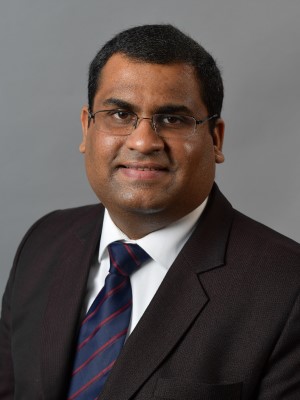
Ron T. Varghese, MBBS, FACP
University of Miami Health System
Miami, FL
Primarily outpatient clinic with inpatient coverage
Inpatient & Outpatient
Mid-Career
Ron T. Varghese writes:
What does coaching mean to you? Coaching is an opportunity for me to help my peers and colleagues achieve their full potential, by helping them bring out the best in them.
How would you define your coaching style? I believe that my style encompasses both the facilitative and holistic approach to coaching.
Favorite coaching focus area? Academic career, Research career, Residency and Fellowship applicants.
What do you like to do outside of work? I enjoy reading fiction.
Dr. Ron T. Varghese is an Assistant professor in the Division of Endocrinology, in the Department of Internal Medicine, Miller School of Medicine, University of Miami, USA.
He is a clinical Investigator with clinical interests in Diabetes Mellitus, Obesity and Lipid Disorders. His research focus in on Cardiometabolic disorders in the setting of Obesity and Diabetes Mellitus. He is Board certified in Internal Medicine and Endocrinology and certified in Obesity Medicine and Clinical Lipidology.
He has worked and trained in both the public and private sectors in both India and USA. He is also interested in coaching / mentoring and teaching health professionals interested in Endocrinology, Diabetes Mellitus, Obesity, and Lipid Disorders.


